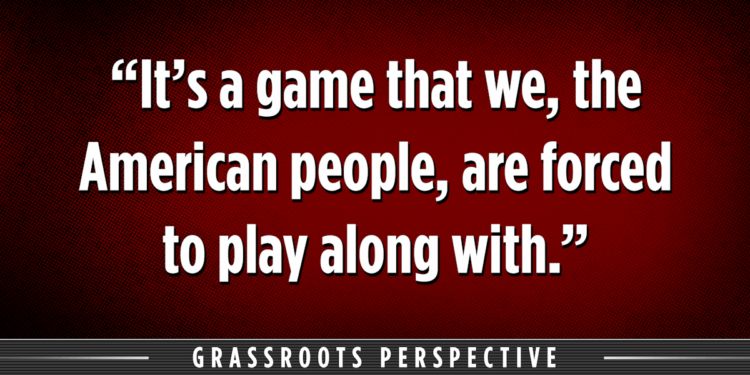The shutdown as a political weapon. It’s a familiar, frustrating cycle in which the party in power becomes the scapegoat and painted as the villain, while the party out of power takes a passive seat, waiting for a misstep, ready to pounce with accusations. But let’s be clear: This isn’t just a game of blame; it’s a critical civics lesson that affects us all.
When the government shuts down, it’s not just a political stunt; it’s a real disruption to all our lives and safety. Services we rely on — from public safety to education — are put on pause. Think about it: government employees are furloughed, parks close, and essential services can grind to a halt. For many working-class families, the implications are dire. They don’t care about the political maneuvering; they care about how their lives are impacted.
The blame game is all too common, but let’s unpack why this happens. The party not in power leverages the shutdown as a bargaining chip. It can’t pass laws on its own, so it threatens a shutdown, a high-stakes bluff that puts pressure on the majority party to cave to its demands. It’s a strategy that relies on public outcry and the desperation of those who are affected. This tactic has been used time and time again, and it’s a game that we, the American people, are forced to play along with, even when we don’t want to.
So how do we break the cycle? First and foremost, we need to hold our representatives accountable. It’s not enough to sit back and watch the chaos unfold. Engaging in the political process is crucial. Attend town halls, communicate with your elected officials, and don’t hesitate to voice your concerns. When constituents make their voices heard, it puts pressure on politicians to act in the best interest of their communities rather than their party.
Additionally, we must educate ourselves about the issues at hand. Understanding the intricacies of government funding, the budgeting process, and the implications of a shutdown equips us to engage in informed discussions. When we understand how our government operates, we can better advocate for policies that benefit our neighborhoods. Knowledge is power, and in this case, it’s the key to breaking the partisan stalemate.
Lastly, let’s strive for unity over division. Yes, we may align differently on certain issues, but the government should work for all of us, not just a select few. When a shutdown occurs, it’s easy to fall into the trap of blaming the “other side.” Instead, let’s focus on what we can do together to push for a government that serves its citizens effectively.
In conclusion, the next time a government shutdown looms, let’s remember that it’s not just a political game; it’s real life for many of us. The finger-pointing may be tempting, but it’s time to shift our focus to demanding accountability and solutions. A government shutdown is a lesson in civics that reminds us that we have the power to demand better for our communities. Let’s use that power wisely and advocate for a system that works for everyone.
















